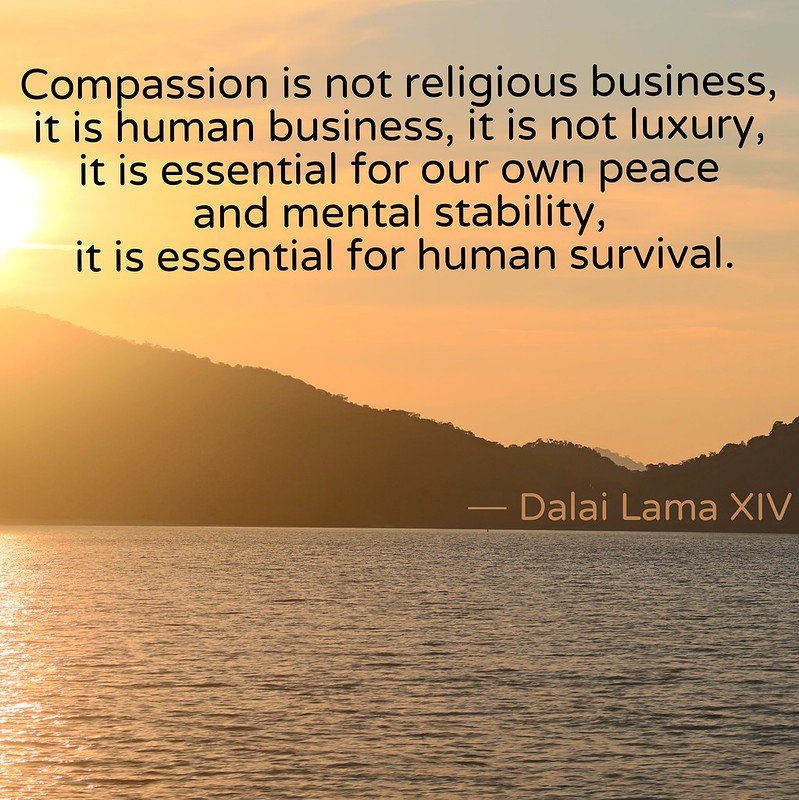TIO Public Square
Why Character Matters in the Oval Office
by Robert P. Sellers
H.L. Mencken, a Baltimore journalist, essayist and satirist writing in the early decades of the 20th century, was a staunch atheist and an opponent of representative democracy. Yet, he had controversial observations of American society that are still interesting. For example, in the book Abounding Grace: An Anthology of Wisdom by M. Scott Peck, he is quoted: “It is inaccurate to say I hate everything. I am strongly in favor of common sense, common honesty, and common decency. This makes me forever ineligible for any public office.”
H.L. Mencken - Photo: PICRYL
Of course, it is cynical to think that virtues such as common sense, honesty and decency never characterize persons in public office. Perhaps Mencken was using hyperbole and humor to make his critique of candidates for public office more memorable. But there have actually been both “saints” as well as “sinners” who have held all kinds of public offices, a historical fact that’s true all around the world.
During this presidential election season in America, there is considerable argument that a candidate’s character must be weighed, which suggests that Mencken’s comment was clever although not correct: one can have common sense, honesty and decency and yet stand for election.
Ohio blogger Robin Gates, in a recent post about character and the voter’s choice, explained: “I write not to advocate for or against one party or candidate. Instead, I am advocating for a principle. That principle is that a candidate’s character should matter when voting.” Gates is not a national figure, but his salient reminder does hold promise or peril for the entire country. He continues:
In deciding who to vote for, let’s ignore whether the candidate is a member of my tribe or not. Let’s ignore whether they are a good debater or are adept at the sound bite. Let’s ignore their platitudes, the promises they can’t possibly keep, how much money they have raised, and their skills at today’s political games. Instead, let’s consider their character.
In the last quarter century, more and more ethicists have advised focusing upon character and virtues rather than rules and principles for evaluating the goodness of a person. Appropriately, then, Christian ethicists Glen Stassen and David Gushee focus their examination of “kingdom ethics” for the Church and Christ-followers upon character ethics, or virtue ethics. They note in their book Kingdom Ethics: Following Jesus in Contemporary Context that “it is not enough to teach rules and principles about right and wrong; we need to nurture the kind of character and virtues that lead people actually to do the right and avoid the wrong.” Helpfully, the writers provide simple explanations of character and virtues. “Virtues are defined as qualities of a person that make that person a good person in community, and that contribute to the good of the community, or to the good that humans are designed for. These are the qualities of character.”
Evangelical professor of religion and philosophy, Steve Wilkens, in his book Beyond Bumper Sticker Ethics: Introduction to Theories of Right & Wrong, concurs, noting that:
character ethics does not start from the question, What should I do? Instead, the primary issue is, Who should I be? This does not ignore what we do, but encompasses behavior under the broader category of character. Virtue makes us good and causes our actions to be good. While virtue is not primarily about what someone does, we cannot be virtuous without doing good.
The Dalai Lama, Buddhist spiritual and political leader of the Tibetan people, is a tireless worker for human rights and world peace and the winner of many international awards, including the Nobel Peace Prize. He writes in his book Ethics for the New Millennium, “In order to transform ourselves – our habits and dispositions – so that our actions are compassionate, it is necessary to develop what we might call an ethic of virtue.”
He explains that after the virtue of compassion, the next most important one to develop is what in the Tibetan language means something like “able to bear” or “able to withstand.” This character trait is associated with a resolute spirit, a response to the typical negative thoughts and emotions that arise when one is threatened with opposition or harm.
To illustrate, the Dalai Lama tells the story of Lapon-La, a monk from a monastery in Nangyal, who like thousands of Tibetan monks and officials was imprisoned by the occupying Chinese army. When he was released, after many years, he was allowed to join the Dalai Lama’s community in exile in India. Seeing this old friend, His Holiness noted that he still seemed mentally and physically fit. In conversation with him, however, he discovered that the monk had been subjected to years of “re-education,” including frequent torture. When asked whether he had ever been afraid, Lapon-la answered that “there was one thing that had scared him, the possibility that he might lose compassion and concern for his jailors.”
This is the virtuous answer to threat and harm, the Dalai Lama insists, a response one may hope to develop by the transformation of heart and mind by putting “the pursuit of virtue at the heart of our daily lives.”
The example of the monk Lapon-la is stirring. It is difficult to imagine such a response to one’s tormentors. But as a Christian, I must remember that on the cross, enduring his own slow and painful death, Jesus prayed for the welfare of his executioners.
Stassen and Gushee contend that one’s character is shaped by such models as these: our teachers and mentors, our spiritual heroes and those in our faith traditions who live with integrity. This truth confirms that the ordinary citizens, including impressionable children and youth, will be influenced by the character of our leaders.
M. Scott Peck, American psychiatrist and best-selling author whose 1978 book, The Road Less Traveled, became a spiritual guide for millions of readers, has collected his favorite quotations in an anthology of virtues that comprise human character. Many of the quotations are relevant as we think about the character of not only ourselves but of our leaders and elected officials.
Photo: Unsplash
Some of these quotations are humorous, like 17th-century English moralist Samuel Johnson’s advice about honesty: “If he does really think that there is no distinction between vice and virtue, when he leaves our houses let us count our spoons.” Some are very practical, like 19th-century Christian evangelist D. L. Moody’s take on truthfulness: “The best way to show that a stick is crooked is not to argue about it or to spend time denouncing it, but to lay a straight stick alongside it.”
Some offer clear advice, like 19th-century emancipated slave and educator Booker T. Washington’s counsel on charity: “If you want to lift yourself up, lift up someone else.” Finally, some are unsettling, such as 7th-century founder of Islam Prophet Muhammad’s observation on humility: “Whoever has in his heart even so much as a rice grain of pride cannot enter into paradise.”
I can’t help but think that honesty and truthfulness, charity and humility ought not only to illustrate the lives of everyday persons but especially must mark the character of the President of the United States.
Interestingly, both presidential campaigns are attacking the character of the other candidate.
Republican supporters of Trump are attacking Harris, but they are not claiming that the central issue of the election should be character. Maybe that is because to highlight character could backfire and hurt their own candidate. Nonetheless, their attacks imply that Harris has a character problem. She is “dangerously liberal,” “vicious and dumb” and “a DEI vice-president” marked by “mediocrity.” They accuse her of deception in covering up President Biden’s actual mental decline. Others even said she had “slept her way to political prominence.”
Democratic supporters of Harris, on the other hand, are attacking Trump, clearly stating that character is critical. Oprah Winfrey, for example, told the cheering crowd at the DNC that “decency and respect are on the ballot.” Michelle Obama asserted that Trump’s lies about Democrats only make us small, adding “And let me tell you this: going small is never the answer … Going small is petty, it’s unhealthy, and quite frankly it’s unpresidential.” Others call Trump and Vance “weird,” and with Trump’s endorsement by Robert Kennedy, Jr., now “even weirder.” When Trump posts mean or crude comments about Harris on his Truth Social website, he “is simply doing what Trump does brilliantly. He’s just getting attention; that’s what he loves. He missed it so much last week [during the DNC], he was withdrawing like an addict,” explained Joanna Coles, Chief Content Officer of The Daily Beast. Meanwhile, the media outlet Occupy Democrats is circulating a meme that features a serious-looking Trump and is labeled: “Donald Trump is everything we teach our children not to be. A crass, loud, petty, selfish, arrogant, uninformed, mean-spirited bully who enjoys inflicting pain on those less fortunate.”
For each of the days remaining before the election day on November 5, the public square will be congested by rallies, parades, debates, interviews, speeches, billboards, yard signs, television commercials, newspaper op ed pieces, email pleas for money, phone calls, door to door canvasing and leaflet dropping.
Photo: Unsplash
So, when you are feeling anxious, overwhelmed, even violated – find a quiet place of escape. Let it be a refuge where you can be alone with your thoughts. There, forget the arguments about what each candidate has or has not done. Do not focus on actions, even though they are important. Instead, take a careful assessment of each candidate’s obvious virtues, or lack of virtues, as you have come to observe and know them. If you are a spiritual person, even commit your choice to genuine prayer for divine guidance.
Why must you do this? Because the President ought to exhibit common sense, common honesty and common decency. Because the President must be a good person. Because the President needs to be compassionate and able to bear criticism and opposition. Because the President should be a role model.
For the sake of our nation and people, let us choose our President thoughtfully because the character of the one who will occupy the Oval Office matters.
Header Photo: Wikimedia





